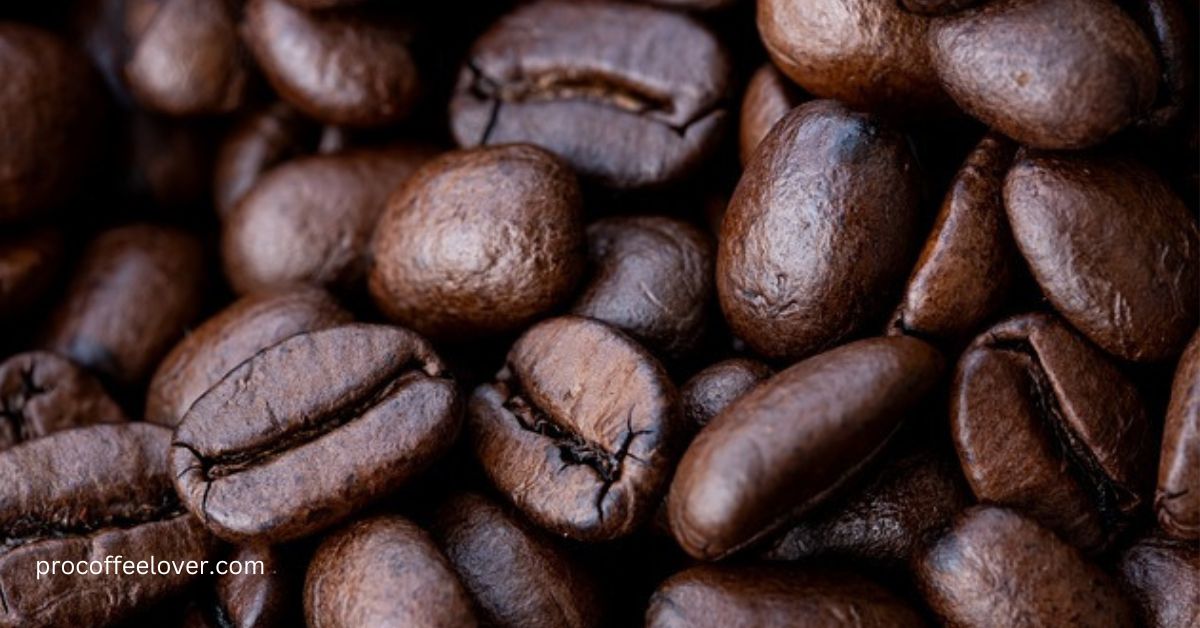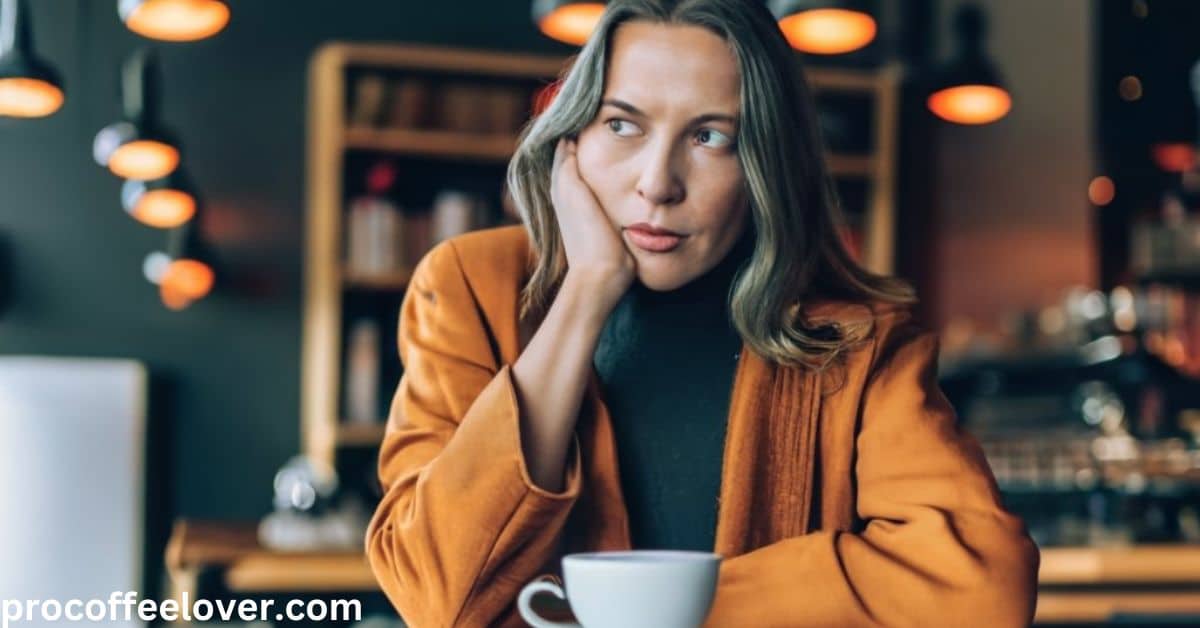Decaf coffee is the best alternative for coffee lovers who want to limit their caffeine intake for personal preferences or health issues.
It is just like regular coffee, except for avoiding anxiety-inducing caffeine. But how can decaf coffee cause anxiety? Let’s have a closer look for a better understanding:
What Is Decaf Coffee?

Decaf coffee is just regular coffee that has had caffeine removed. As a result, it tastes like regular coffee and boosts your energy, without all the side effects of caffeine, like jitters and irritability.
It is made from coffee beans that have had most of the caffeine removed by soaking them in water, steaming them, and then washing them with a solvent. Therefore, most decaf coffees have removed 97% of their caffeine content. In comparison, regular coffees contain anywhere from 70-140 mg of caffeine per cup.
Learn How Decaf Coffee is Made
Decaffeinated, or ‘decaf’ coffee can be made when coffee beans naturally contain almost 0 caffeine. The manufacturing of decaf often happens through either a chemical or water process.
In the chemical process, methylene chloride and ethyl acetate extract caffeine from the beans. On the other hand, the water process uses only water and activated charcoal to extract the caffeine; this method is deemed much safer for consumption than chemicals.
Why Do You Feel Anxious After Drinking Coffee?

Feeling anxious after drinking coffee may have a few reasons. Let’s discuss each one of these below.
Caffeine Content Caffeine is a psychoactive stimulant that speeds up your central nervous system and can cause anxiety, panic attacks, jitteriness, an increased heart rate, and restlessness.
Decaf coffee still contains anywhere from 0–7 mg of caffeine per cup—much lower than regular coffee. However, even a tiny amount of caffeine in decaf coffee can cause anxiety symptoms in some people.
Acidity Level:
Coffee contains some acids, which can also increase acid levels in your stomach, leading to uncomfortable symptoms like bloating and acid reflux. These acids can also contribute to feelings of anxiety and panic attacks if left unchecked.
Degree of Roasting:
The degree to which coffee beans are roasted matters a lot. It impacts how traumatic you can feel after consuming decaf coffee. Darker roasts have fewer acids than lighter roasts but have higher levels of caffeine due to their longer roast time. If your decaf coffee is made with darker roasted beans, this could explain why you feel anxious after drinking it!
Also, we learned about can-i-put-sweetener-in-coffee-during-intermittent-fasting/
How Caffeine Affected My Anxiety
You may be wondering how caffeine can cause anxiety. Sharing my personal experience of switching to decaf, I noticed an immediate difference. Although no scientific research backed it up, my anxiety levels went down.
Some of you are skeptical of this claim—after all, many believe that coffee is an anti-anxiety drug because it increases alertness and vigilance.
But people don’t realize that caffeine triggers the “fight or flight” mode of the body, which can cause physical manifestations of anxiety like rapid heart rate, increased sweating, and jitters.
By switching to decaf coffee, you are avoiding the potential consequences of drinking caffeinated beverages and allowing your body to experience a more relaxed state.
Why Choose Decaf Coffee?

Considering all the evidence, why would someone choose to drink decaf coffee? There could be many reasons to select decaf coffee. Some of them are:
Lower caffeine levels:
Most people think of caffeine when they hear “coffee,” but decaf coffee is made from beans with nearly all their caffeine removed—typically about 97%. As a result, it can significantly lower your caffeine intake and be beneficial for those who are sensitive to caffeine
Lower Risk of Adverse Side Effects:
Caffeine increases alertness, heart rate, and blood pressure, which can worsen anxiety symptoms. Replacing caffeinated beverages with low- or no-caffeine options, such as decaf coffee, can reduce the risk of experiencing these side effects and offer some relief from anxiety.
More antioxidants:
Decaffeination processes are not known to reduce antioxidant levels in coffee significantly, so decaf still contains healthy compounds like polyphenols that may improve overall health and well-being. Also, low-caffeine drinks are easier on your stomach than regular coffee and do not cause jitters like caffeinated ones.
Why Do People Drink Decaf Coffee?
Well, there are a few reasons why people might opt for Decaf:
- First, decaf offers a milder form without the potential for an exaggerated heart rate or jitters.
- A lower quantity of caffeine doesn’t tend to aggravate your anxiety (nor does it give you the jolt that regular coffee does).
- It is a healthier option since it contains much less stimulant than regular coffee.
- Lastly, some people prefer the taste— a milder coffee that you can enjoy without worrying about exacerbating health issues.
Benefits of Decaf Coffee
You can lead a healthier lifestyle by occasionally drinking decaf coffee instead of regular coffee. Because it has:
Lesser Caffeine Intake:
Decaf coffee has significantly less caffeine than regular coffee. It is an ideal way to reduce your risk for symptoms related to depression. Caffeine can sometimes lead to an increased heart rate and blood pressure, which are linked to anxiety.
So, if you’re looking for peace of mind and relaxation, sipping a cup of decaf is what you need
Lower risk of type 2 diabetes:
Decaf coffee also offers protection against type 2 diabetes as it contains polyphenols and antioxidants that trigger the beta cell to secrete insulin and control blood sugar.
Detox the body:
Decaf coffee is an excellent source of Vitamin B-3 (known as Niacin). It helps the body to reduce cholesterol, improve brain functions, fight arthritis, decrease stress, and lower the risk of a heart attack. Unfortunately, while this is one of the essential vitamins the body needs, many people suffer from a deficiency.
Also,we learned about why-is-my-espresso-puck-wet/
Side Effects of Decaf Coffee
It turns out that switching from regular coffee to decaf might have some potential side effects for those of us with anxiety. Research shows that when someone who regularly drinks caffeinated coffee switches to decaf, it may increase anxiety levels due to the sudden drop in caffeine intake.
Decaf coffee can worsen anxiety because it still contains trace amounts of caffeine, and the body adjusts its stimulation levels based on the amount of caffeine ingested.
So when someone goes from drinking lots of caffeinated coffee to drinking decaf, their body may become accustomed to the higher levels of caffeine and then get thrown off when it only receives a tiny bit.
Moreover, some people feel jittery or uncomfortable after drinking decaf, even though technically, the effects of caffeine are no longer present in their bodies. It could be due to psychological factors; for example, feeling anxious because you expect to be jittery after drinking a cup of coffee.
Practical tips for managing anxiety levels
It’s essential to manage your anxiety levels and, if possible, avoid triggering factors — decaf coffee being one of them. For managing your anxiety levels, some practical tips are here:
How Can Decaf Coffee Cause Anxiety(FAQs)
Are There Any Side Effects From Drinking Decaf Coffee?
The drawbacks of decaf coffee include acid reflux, jitters, or even insomnia if you drink it before sleeping.
Those who have a sensitivity to caffeine may still suffer from headaches even if they choose to drink decaf coffee.
Is Decaf Coffee Good For Mental Health?
Yes, it is. It contains compounds called polyphenols, which boost cognitive performance, improve memory and alertness. It is also effective at combating free radicals produced by stress and anxiety.
According to human cell studies, decaf coffee may protect neurons in the brain to prevent the development of neurodegenerative diseases.
Why Does Decaf Coffee Still Make Me Jittery?
Because it still has some amount of caffeine that can cause to make me jittery. Although caffeine is in smaller quantities, it still has side effects that can all occur. So it is all about how much you drink and one’s sensitivity.
Conclusion
Finally, we learned about How Can Decaf Coffee Cause Anxiety? While some studies suggest that decaf coffee can increase feelings of restlessness and anxiety, this might be because decaf coffee can still contain trace amounts of caffeine.
In addition, other factors such as individual sensitivity, genetics, and lifestyle may play a role. It is necessary to consult your healthcare provider, as they can provide personalized advice based on your individual health needs.
Ultimately, everyone is different, so it is essential to experiment with different types of coffee to find which one works best for you.
